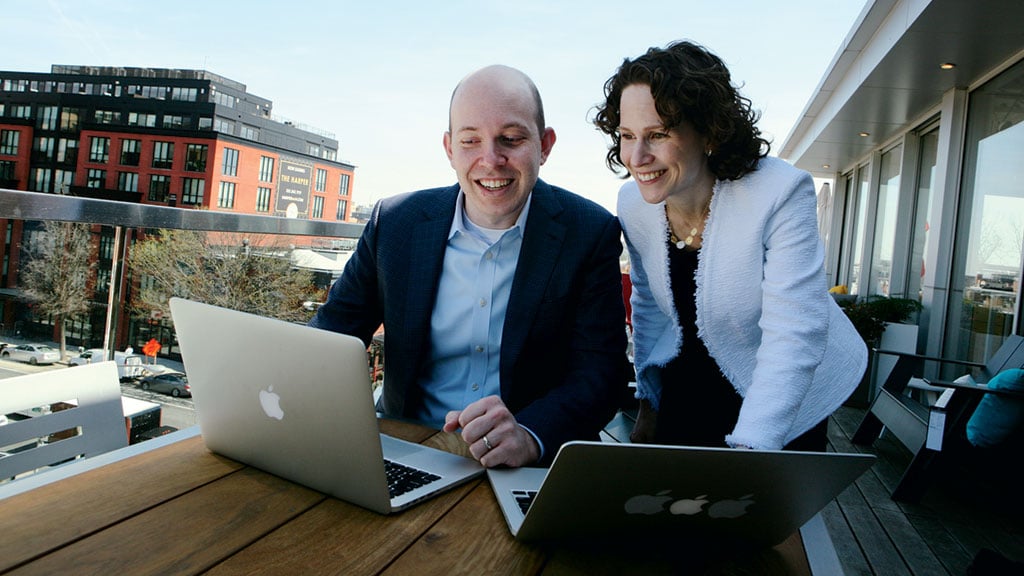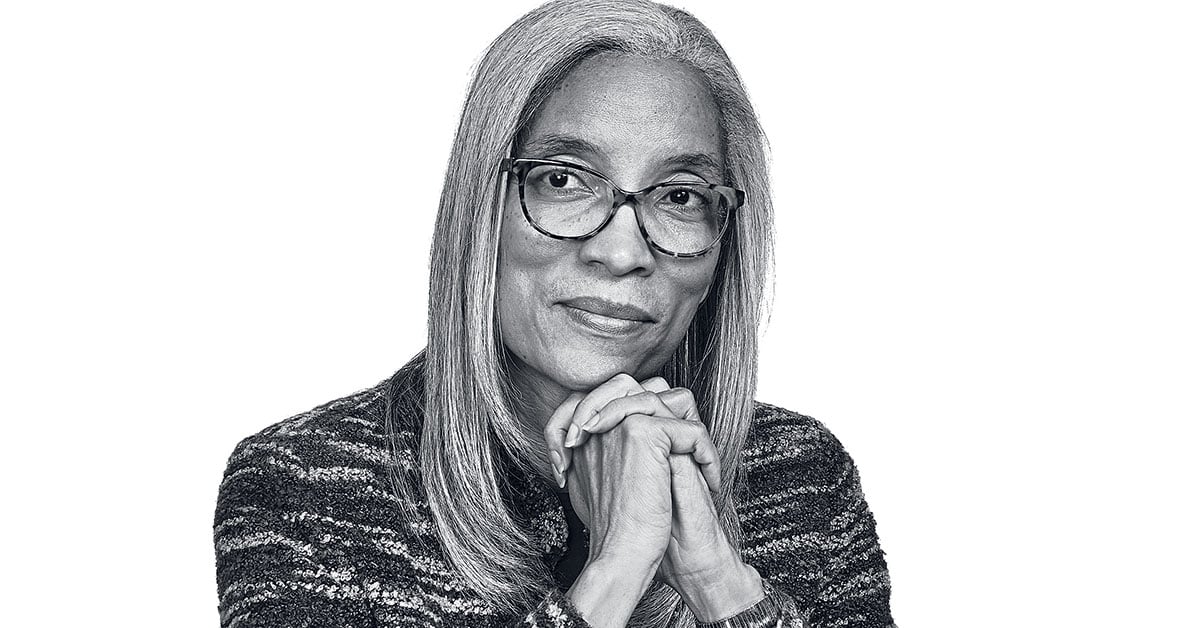Brian Netter, a 35-year-old lawyer at Mayer Brown, was chatting with a colleague on a Friday afternoon several weeks ago when the DC Superior Court unexpectedly handed down a breakthrough decision on a pro bono case he’d been working on: After four years of wrangling, the court had freed the bulk of the District’s budget from federal control.
“I got an alert saying something had been issued,” says Netter, who was still preparing for another hearing in the case. As soon as he could end the conversation—“I was having trouble paying attention”—he forwarded the message to his co-counsel, Karen Dunn, at Boies, Schiller & Flexner.
“Why didn’t you call me?” Dunn asks him two weeks later across a table at Bakehouse, a U Street–corridor coffee shop.
“You were in a meeting,” Netter reminds her.
The victors celebrated over dinner. “With our kids,” she says.
“Like we do every Friday,” he adds.
Before taking on the case, neither Dunn, 40, nor Netter—who married in 2009—knew much about the 2012 Budget Autonomy Act other than that they’d voted for it in a referendum, as 83 percent of DC voters had. The law dictates that any revenue the city raises on its own—as opposed to funds appropriated by Congress—can be spent how and when the city likes. For decades, thanks to a quirk of its legal status, the District had to delay basic expenditures, such as school budgets, until Congress passed a DC spending bill—or not.
Even after the referendum passed, then-mayor Vincent Gray and the city’s chief financial officer, Jeffrey DeWitt, refused to act on it, saying it violated home-rule strictures. In 2014, Dunn got a call from a former colleague who worked for the city: Would she be interested in suing Gray and DeWitt to force them to honor their obligations? Dunn knew she had the trial experience to get things started. But with appeals likely, she called her husband, who co-leads the appellate practice at Mayer Brown. After a brief meeting with the DC Council’s general counsel, David Zvenyach, they were hired—“for free,” Netter clarifies.
The case dominated their lives, and their living room, for two years. “The person who wasn’t working was entertaining the kids,” says Netter.
“There was no one more opposed to budget autonomy than Naomi,” Dunn says of the eldest of her three children, who tired of shoptalk at dinnertime.
The couple would work until midnight, then meet in a Mayer Brown conference room the next day. They resorted to a babysitter only when they had to prep for court.
It was the first time the two had teamed up on a legal matter. (“Well, we got married,” Dunn points out—in a ceremony officiated by her former boss Merrick Garland, now President Obama’s nominee to the Supreme Court.) After meeting at Yale Law School in 2003, both took DC clerkships—Dunn with Garland, Netter with Judge Judith Rogers on the US Court of Appeals for the DC Circuit. First Dunn, then Netter also clerked for Supreme Court justice Stephen Breyer before Netter settled at Mayer Brown. Dunn spent a year in Obama’s White House and two as a prosecutor for the Eastern District of Virginia; she joined Boies Schiller as a partner in 2014.
Netter, who has a master’s degree in engineering from the University of Michigan, possesses a recall of facts so precise it borders on the scientific. Dunn remembers the atmospherics, such as “the sheets of pouring rain” that fell during a document hunt that took them from the Library of Congress to Howard University’s archives.
It was an early draft of the Home Rule Act, acquired on a similar paper chase, that ultimately vindicated their argument that Congress had intended to let the District make more of its own decisions over time. One night as Dunn slept upstairs, Netter discovered the rejected version, which clearly restricted DC’s rights. That Congress had later softened the wording proved, the duo would argue, that lawmakers foresaw easing control. In the morning, Netter told Dunn about the “aha” moment.
“Why didn’t you wake me up?” she asks.
Brian smiles: “It was really, really hard not to.”
This article appears in our May 2016 issue of Washingtonian.




















